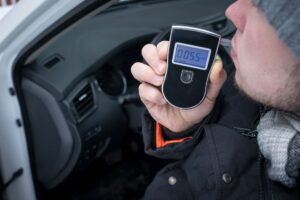SACRAMENTO, Calif. —
The new year means big changes for California’s criminal justice system. Several new laws that go into effect in 2019 have an emphasis on criminal and social justice reform. Here’s a look at four new laws that are changing the way things are done in California:
End of Cash Bail
California is getting rid of cash bail for suspects awaiting trial. Supporters contend it makes criminal justice fairer for people with little money, but bail agents are seeking a referendum to overturn the new law.
“We had to collect 365,000 signatures,” said Topo Padilla, president of the Golden State Bail Agents Association. “We collected 550,000. So, that’s 550,000 voters who signed a piece of paper saying, ‘Yes, let’s put this on the ballot and let us decide,’ rather than 120 legislators down there.”
The new law takes effect Oct. 1, 2019.
Judges will use a pretrial risk assessment to determine who should be released from jail. In most nonviolent misdemeanor cases, defendants would be out within 12 hours.
In other cases, defendants would be scored on the seriousness of crime – and how likely they are to show up for court.
The new law means up to 8,000 people working in the bail industry statewide will be out of work, according to Padilla.
“This is about public safety” Padilla said. “It’s not solely about saving our jobs. This is truly about public safety and getting rid of a constitutional right that people have.”
DUI Ignition Interlock Devices
In 2019, a new California law will impact drivers caught driving while intoxicated. The legislation aims to keep the roads safer, while still allowing those with DUI convictions to drive.
It all starts with a breathalyzer — a device that can be found on some 300,000 vehicles nationwide. The new law allows those convicted of DUI to keep their car and their license, but with an important safety restriction.
For Californians convicted of driving under the influence two times, there are now new rules of the road.
“Starting Jan. 1, individuals convicted of a DUI will only be able to regain their full driving privileges if they install an ignition interlock device in each of the vehicles they own,” said San Diego Assemblyman Todd Gloria.
Blowing into a breathalyzer measures the amount of alcohol in a driver’s system and prevents the car from starting unless the driver is sober.
The new law for ignition interlocks first began as a pilot program in Sacramento and three other counties. Industry experts said it showed a 74 percent reduction in repeat DUIs. Now, it’s getting rolled out statewide.
“Other states that have laws comparable to California indicate that a law like this should reduce around 15 percent of drunk driving fatalities,” said John Ulczycki, with the Coalition of Ignition Interlock Manufacturers.
Ulczycki projected that in California, the devices could save up to 100 lives a year.
Pot Convictions
The new year also means new liberties for thousands of Californians with pot convictions. Under a new law, the California Department of Justice must now review marijuana convictions that could be reduced or purged since voters approved Proposition 64.
It means a new beginning for many people convicted of possessing marijuana, something that is now legal under California law.
The new law is a follow up to Prop 64, passed by California voters in 2016, making recreational-use marijuana legal in California.
People with felonies or misdemeanors for cannabis-related offenses that were charged under Prop 64 can now petition the courts to reduce or remove those convictions.
“This is one of the reasons why we advocated for Proposition 64,” said Kimberly Cargile, executive director for A Therapeutic Alternative.
Cargile added that Prop 64 and the new law will “provide some reparations, some social justice, for the people that have been harmed by the war on drugs.”
The new law makes it easier for Californians with marijuana convictions to get housing and employment once those offenses are removed from their records.
Under the law, the DOJ must prepare a list of names by July 1 for submission to local district attorneys. The DA can challenge the findings, but if there’s no challenge, the courts can then remove or reduce the criminal conviction.
Prepaid Vote-By-Mail Ballots
There’s no denying that voting by mail is now much easier in California, thanks to a new law that allows ballots with prepaid postage.
It means you’ll never have to use a stamp. There’s one group that could especially benefit, according to Paul Mitchell, vice president of Political Data.
“If we eliminate postage for voting, you could potentially see more young people, who are mostly doing bills and paying things online, being able to return that ballot without having to worry about asking somebody where they can find a stamp,” Mitchell said.
Under the new law, counties can ask the state to reimburse them for the additional cost of paying for all the postage.





